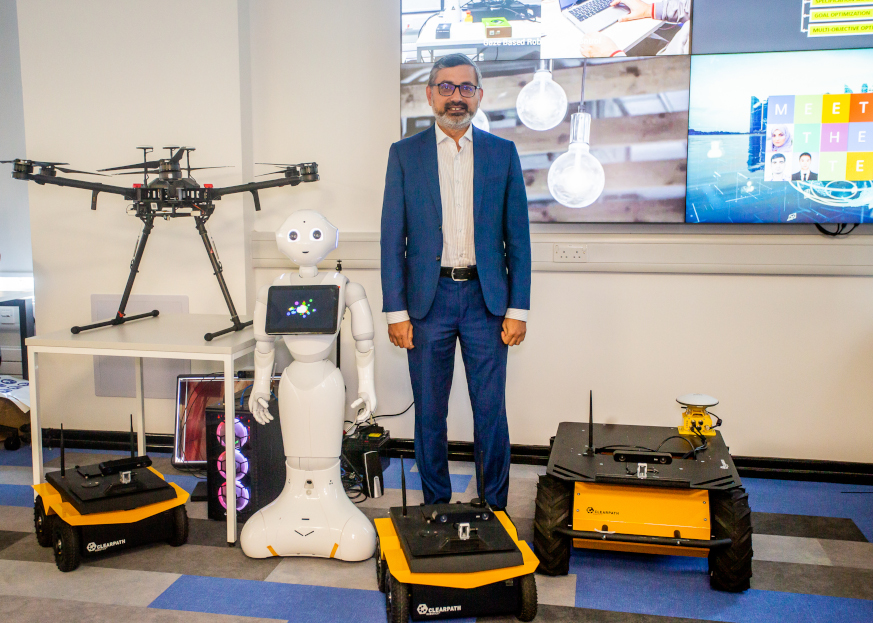Net-Zero 50 accolade for Professor Muhammad Ali Imran
Published: 18 August 2024
Prestigious UK list of 'net-zero leaders' names leading JWSE Professor of Communication Systems
Congratulations to Professor Muhammad Ali Imran for being recognised as one of the United Kingdom's 'Net Zero 50' in a prestigious list of net-zero leaders unveiled at the Houses of Parliament on 8th July, in a session opened by Lord Deben. This recognition highlights Professor Imran's significant contributions to advancing net-zero goals, particularly through his groundbreaking research in two critical areas: Energy Efficient Communication Technologies and Systems and the Use of Connectivity to Reduce Energy Consumption in Other Sectors.
The term 'net-zero' means an ideal situation wherein human activities release and remove the same amount of CO2 from the atmosphere, thus the positive effects cancel the negative.
Energy Efficient Communication Technologies and Systems
Professor Imran has been at the forefront of developing energy-efficient communication technologies, which are essential for reducing the carbon footprint of modern digital infrastructures. His research has focused on optimising the energy consumption of wireless networks, particularly in the context of 4G/5G/6G and beyond. By pioneering new techniques for network management and radio resource allocation, Professor Imran has significantly reduced the energy required for data transmission, thereby lowering the overall energy demand of communication systems. His work has not only improved the efficiency of individual components but also the entire network architecture, making it more sustainable and aligned with net-zero objectives.
One of the key achievements in this area is Professor Imran's research on self-organising networks. These networks autonomously optimise their performance, including energy usage, without human intervention. This innovation plays a crucial role in reducing the operational energy consumption of communication networks, especially in scenarios with fluctuating demand. His contributions have earned him a Fellowship of the IEEE, specifically for his work on energy-efficient and self-organized systems. This underscores the global impact and recognition of his research.

Use of Connectivity to Reduce Energy Consumption in Other Sectors
Beyond his contributions to the communications industry, Professor Imran has also explored the broader applications of connectivity to reduce energy consumption across various sectors. His research extends to how improved connectivity can be leveraged to optimise energy use in industries such as transport and residential/office energy management. For instance, by enhancing the connectivity and communication between devices and systems.
Conclusion
Professor Imran's contributions to energy-efficient communication technologies and the broader application of connectivity in reducing energy consumption are exemplary. His research not only advances the field of telecommunications but also plays a pivotal role in achieving global net-zero targets. His recognition as a top 50 net-zero leader is a testament to the significant and impactful nature of his work in driving forward the agenda for a more sustainable future.
This is an apsiration shared by the University of Glasgow, which has pledged to reach net-zero carbon emissions by 2030, and which was the first UK university to promise to divest from fossil fuels within a ten year period.
First published: 18 August 2024
University of Glasgow - Sustainability - Draft Climate Change Strategy
Our staff - Professor Muhammad Imran
The Net Zero 50 List 2024 in partnership with CGI is a Digital Leaders initiative. It highlights the ongoing efforts of 50 inspiring individuals various sectors across the UK who are leading the charge towards decarbonisation.

